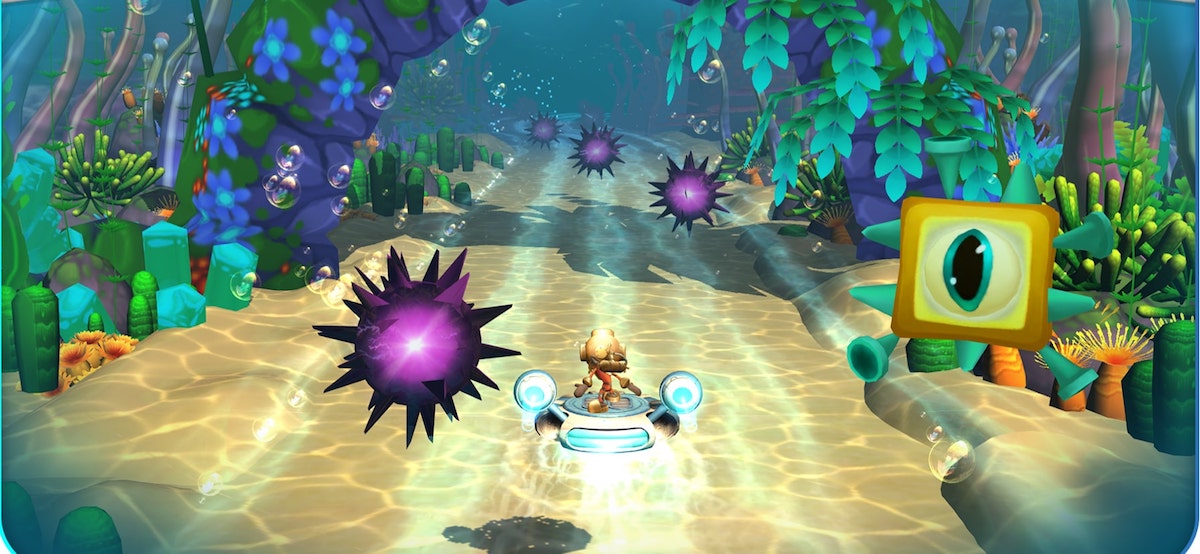<< Back
First Video Game, by Prescription Only, Approved to Treat ADHD in Youths

June 18, 2020
It might seem like a treat for the children, but 30 minutes of prescribed video-game playing could lend a sense of calmness that their parents can enjoy as well.
The Food and Drug Administration (FDA) this month took the revolutionary step of approving the video game EndeavorRX by Akili Interactive as treatment for Attention Deficit Hyperactivity Disorder (ADHD) in youth ages 8 to 12. It is the first non-medication treatment for ADHD.
“This is quite literally a game-changer,”said Dr. Paul Weigle, associate medical director of ambulatory services at Natchaug Hospital, part of Hartford HealthCare’s Behavioral Health Network. “Out of thousands of apps created to treat illness, the FDA has approved only two, the other being for treatment of substance-use disorders. This is the first time a video game has achieved this distinction.”
FDA approval, he explained, requires the treatment demonstrate “proven efficacy and safety.” Many routine treatments do not have the level of evidence for FDA approval, including video games that provide education about diabetes-appropriate management for youth or those used with counseling to teach social skills to children with autism.
In this case, Akili Interactive studied more than 600 youth over seven years to see if the game made a difference in their ability to focus. One study showed that one-third of those using the game “no longer had a measurable attention deficit on at least one measure of objective attention” after playing the game five days a week for a month.
“EndeavorRX sets a precedent and opens the door for other video game treatments to follow,” Dr. Weigle said, “which may mean effective and accessible new treatments will be available. This creates a new market in the video game industry which will incentivize the creation of treatment-oriented games.”
A prescription for EndeavorRX, in which players must dodge obstacles and collect targets, is for 30 minutes each day for a population of youth he said are “typically drawn to video games even more than their peers.” The game sharpens the player’s focus and improves certain measures of focus with minimal risk of side effects.
“Having met with the research team and reviewed the research closely, it is clear to me that playing the game over time improved performance on a computer-based measure of attention and working memory called the Test of Variables of Attention (TOVA),” Dr. Weigle said.
The research, he said, does not clearly demonstrate whether the game improves the lives and functioning for youth with ADHD.
“The TOVA is, in some ways, similar to EndeavorRX, so it remains to be seen whether the game simply ‘teaches to the test’ of the TOVA or improves core symptoms of ADHD in the way that conventional treatments do,” he said.
Parents eager to help their children with ADHD should be wary of them developing gaming disorder, an uncontrollable and excessive habit that can get in the way of adequate sleep, schoolwork and family relations, he said. Youth with ADHD are more susceptible to developing the disorder, which can cause significant dysfunction.
“As video games become more and more engaging and sophisticated, the risk grows,” Dr. Weigle said. “Parents of youth with ADHD should be aware of their habits, and take steps to ensure they do not become excessive and problematic.
“However, based on my experience playing EndeavorRX, it is not such a stimulating game that playing it is likely to lead to this type of pathological habit. It’s no Fortnite!” he said, referring to the popular video game.
Dr. Weigle, who is chair of the American Academy of Child and Adolescent Psychiatry’s Media Committee, said he anticipates even more ways creators will tap the potential to teach positive habits and skills, while improving health and well being.
“Video games are an incredibly powerful tool for escape, fantasy, stress relief, distraction and entertainment. EndeavorRX may be the first step in realizing their potential to improve our health and well-being” he said.
For more information about Natchaug Hospital, click here.
Need to see your doctor? New Patient? For more information about Hartford HealthCare virtual health visits, click here.
Click here to schedule a virtual visit with a Hartford HealthCare-GoHealth Urgent care doctor.
Stay with Hartford HealthCare for everything you need to know about the coronavirus threat. Click here for information updated daily.
Questions? Call our 24-hour hotline (860.972.8100 or, toll-free, 833.621.0600).
Get text alerts by texting 31996 with COVID19 in the message field.